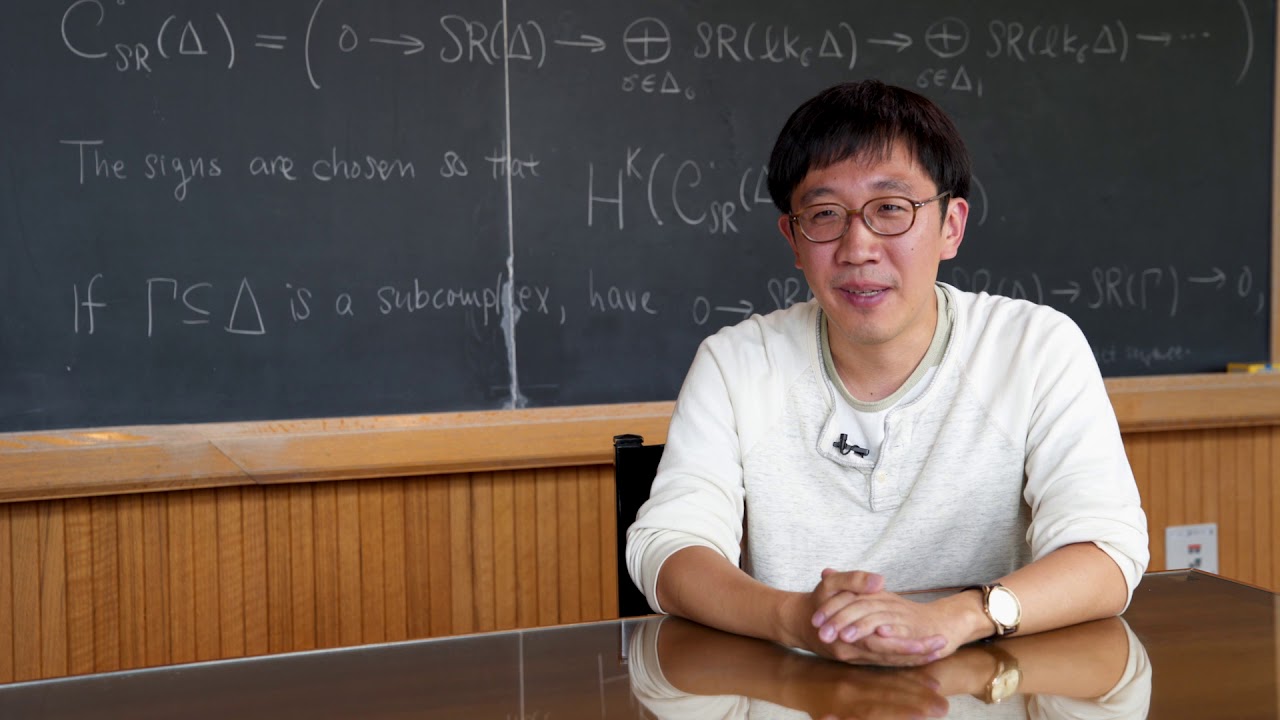A mathematician who hated math in school but won the Fields Medal: Who is June Huh?
The Fields Medal is one of the most prestigious awards in mathematics. Every four years, the Fields Medal is awarded to four mathematicians under the age of 40. One of the 2022 Fields Medal winners was June Huh, 39.

However, his story is a little different from other mathematicians. The reason for this is that he did not really like mathematics until the sixth year of his university life.
As a matter of fact, June Huh's math grades were not very good during his education life. For this reason, he even thought of becoming a poet during his high school years. He did his best to avoid mathematics all his student life. By coincidence, June Huh realized that he might like math. What reversed his escape was actually a human being, not the mathematics itself.
June Huh (born 1983) is an American mathematician who is currently a professor at Princeton University. Previously, he was a professor at Stanford University. He was awarded the Fields Medal in 2022 and a MacArthur Fellowship in 2022. He has been noted for the linkages that he has found between algebraic geometry and combinatorics.
When brilliant mathematicians are mentioned, things like high grades earned throughout their education, awards won, and an extraordinary tenacity to study come to mind. However, June Huh does not fit any of these definitions. As a result, if you are having problems with mathematics, he will give you the inspiration you are looking for.
How June Huh Got to Love Mathematics
In fact, June Huh loved to learn, but he couldn't focus or keep things in mind in class. Instead, he preferred to read to himself and take a walk on a mountain near their home.
Perhaps under the influence of the books he read, he decided to become a science writer instead of a poet. For this, he started taking Physics and Astronomy classes at Seoul National University. In fact, these lessons did not interest him very much in the beginning. However, a lecture given by Heisuke Hironaka, a Fields Medal-winning mathematician in 1970, would change his life.
Heisuke Hironaka, who won the Fields Medal in 1970, not only helped Huh enter the magical world of mathematics but also helped him close his gaps in mathematics, in which he was involved quite late, in a master-apprentice relationship.
Huh quickly fell under the influence of Hironaka, a charismatic teacher. But what fascinated him from day one was not only the teacher's charisma but also the mathematics itself. In the course presented as “Introduction to Algebraic Geometry,” where normally solutions of algebraic equations and their geometric properties should be studied, Hironaka was talking about his own work in a field called singularity theory, a field that focuses on certain types of spaces. The class size, which started with two hundred people, dwindled rapidly, leaving only five students, including Huh, to stay in class.
For the first time in his life, June Huh witnessed mathematical research in real-time. The course he attended was actually a real-time reflection of the research that Hironaka was doing at the time. That's why he wasn't much like other classes. He was intrigued by the excitement he felt as Heisuke Hironaka reported his findings. Perhaps realizing this, Hironaka became more interested in Huh. As a result, June Huh found the area of interest he was looking for in an unexpected place.
Eventually, June Huh found his passion and was able to take it further.
Because he didn't study much mathematics, Huh focused his career on what he called "the naked eye" objects. As a result, he started to work on combinatorics, which we can define as the art of counting things that can be counted.
Another area of mathematics that offers concrete objects is geometry. The field of mathematics that uses equations to describe geometric objects is called algebraic geometry. As a result, Huh would focus his work on building bridges between different areas of mathematics, such as combinatorics and algebraic geometry.
Great advances in mathematics often happen when someone makes connections between seemingly disparate fields. Indeed, his success was a testament to that. After all, he was able to devote himself entirely to mathematics. He managed to stand out in a short time.
While still a Ph.D. student in Illinois, he managed to prove "Read's estimation," a 40-year-old problem in graph theory. His solution surprised the mathematical community. He invited Huh from the University of Michigan, who had previously rejected his doctoral application, to the doctoral program.
As you can imagine, the work that led to June Huh's Fields medal is quite complex. It is very unlikely to explain it in a very short way.
